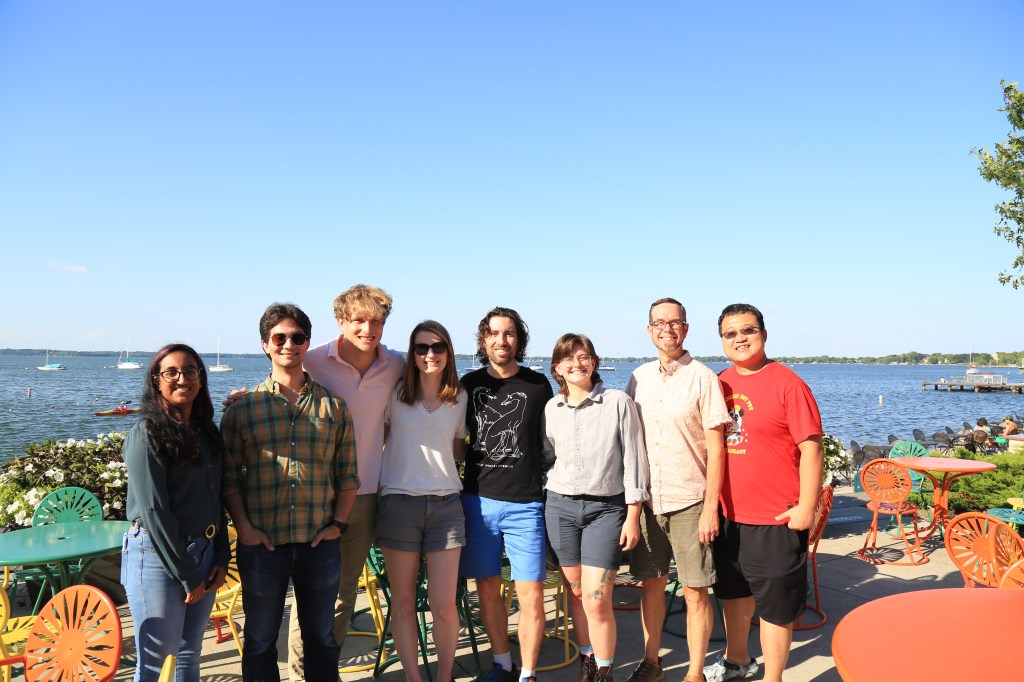Cason Robert Douglas King PhD
September 14, 1989 ~ August 11, 2022 (age 32)



Dr. Cason King passed away suddenly on August 11th, 2022. The family has released an obituary for Cason (see here). I want to further highlight his scientific legacy in our group and emphasize the giant hole his loss has left in our lives, both inside and outside the lab.
Cason received his Bachelor of Medical Sciences (Hon) and PhD from the University of Western Ontario. Cason continued his scientific training when he moved to the University of Wisconsin Madison in 2018. He joined the Mehle lab as a postdoctoral fellow. Typical of Cason’s fearless approach in the lab, he developed a high risk-high reward project to create novel ways to dissect how influenza virus interacts with the cells it infects. This was a new line of experimentation in the lab that required significant technical and intellectual skills, with no guarantee of an exciting outcome. Cason obtained the highly competitive and prestigious Open Philanthropy Fellowship from the Life Sciences Research Foundation to support his project. The Foundation awards only ~20 fellowships each year to an international pool of applicants. This fellowship reflected not only the Foundation’s interest in the science proposed, but also the exceptional potential they saw in Cason.
Through hard work and creativity, Cason’s accomplishments in the lab yielded results that surpassed our already lofty expectations – he revealed a completely unappreciated pathway that cells use to sense and control influenza virus infection, opening a whole new line of investigation. His data suggest a broader phenomenon likely impacting replication of RNA viruses as a whole. Perhaps more importantly, the technique Cason developed can be applied to many different viral systems where investigators can now address questions that were previously intractable. The significance of his findings are reflected in the excitement shown by the research community. He wrote two reviews while in the lab highlighting what we know, and don’t know, about virus:host interactions and how to fill in those gaps. This past summer Cason was invited to present his findings in a talk at the international Negative Strand RNA Virus meeting in Portugal and at the national American Society for Virology meeting. His work was also featured prominently in a keynote address given at the same meeting. At these meetings, multiple research groups approached Cason to collaborate in using his system to address questions with their favorite virus. Cason drafted a manuscript describing his breakthrough, and a high profile journal recently solicited the lab to submit his work for consideration.
While Cason’s work in Madison focused on influenza virus, an RNA virus, he never stopped thinking about his graduate work on adenovirus, a DNA virus. Cason was intellectually adventurous, constantly making connections between otherwise disparate areas. Many of the advances he made for influenza virus were quickly applied to adenovirus. Cason’s independence and leadership really shone, as he conceived and performed this work on his own while establishing new collaborations with his graduate lab. Once again, his advances allowed people to ask new questions about the biology of virus replication.
Cason’s science is reflected in his publications and talks, yet these do not easily reveal the larger impact Cason had on his colleagues. As Cason matured as a scientist, he also developed as an intellectual leader and exceptional mentor. Andy considered him a peer, routinely soliciting his opinions or advice on projects. Cason directed the research of a visiting scholar from Thailand. He also was a de facto mentor to many in the lab. He volunteered his own time to guide other lab members through new experiments, to polish presentations, or offer other advice to help move their projects and careers forward. He was a frequent participant, and perhaps instigator, of lab hijinks.
Cason was at the intellectual peak of his postdoc, with clear-eyed views of where his science and career would be going next, and how he could make the biggest impact. His hard work was paying off, and he was able to receive firsthand well-deserved accolades and approval from colleagues that sought him out after his talks. Through all of this, Cason remained exceptionally grounded. He realized that it is the scientist, just as often as the science, that makes the difference. His approach in the lab always focused on both, making him an extraordinarily gifted experimentalist, mentor, colleague and friend. We mourn the loss of our friend and colleague. We also send our sympathies to the many other people Cason impacted, including his parents Sherry and Doug King, brother Bryn, sister-in-law Kara, nephew Kaidan, grandmother Denise and especially his partner and love Eva Berlot. This is also a significant loss for the field, as we are confident that he would have continued to make scientific breakthroughs and mentor new scientists. We encourage you to read his family obituary to obtain a fuller picture of this remarkable person.
